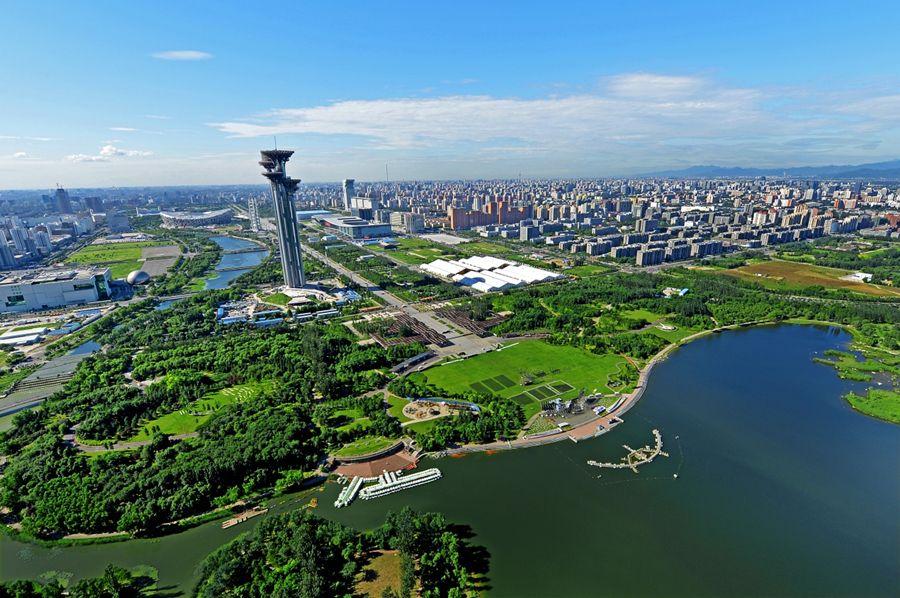BEIJING, Oct. 13 (Xinhua) -- China's goal of achieving carbon neutrality will give a push to low-carbon development and quality transformation of the country's economic structure, environmental experts said at a press conference on low-carbon development Monday.
China will enhance the nationally-determined-contribution targets and strive for the peaking of CO2 emissions before 2030 and carbon neutrality before 2060.
He Jiankun, Vice Chairperson of the National Committee of Experts on Climate Change, said the 2060 carbon-neutral target requires China to achieve near-zero emissions by 2050 and build a sustainable energy system with new energy and renewable energy as the mainstay.
"To achieve carbon neutrality by 2060 requires a huge transformation in all aspects of the social, economic, energy, and technological systems. Simultaneously, the transformation will also bring multiple synergistic benefits to China, such as improved economic competitiveness, social development and environment protection," He said.
Li Zheng, executive vice president of the Institute of Climate Change and Sustainable Development at Tsinghua University, said the carbon neutrality goal is essentially a comprehensive development strategy. At its core, he added, is the concept to embark on a green, low-carbon cycle and sustainable development path while ensuring economic and social development.
"The development of advanced energy technology and the energy system's transformation will bring new economic opportunities and create more jobs. It will greatly increase the electrification ratio in industry, transportation, construction, and other sectors, which is conducive to improving energy efficiency and promoting the digitalization of industry and society," Li said.
Wang Yi, from the Institutes of Science and Development under the Chinese Academy of Sciences, said China will strengthen legislation on climate change and improve fiscal and tax policies to support low-carbon development in the long run. Enditem




 A single purchase
A single purchase









